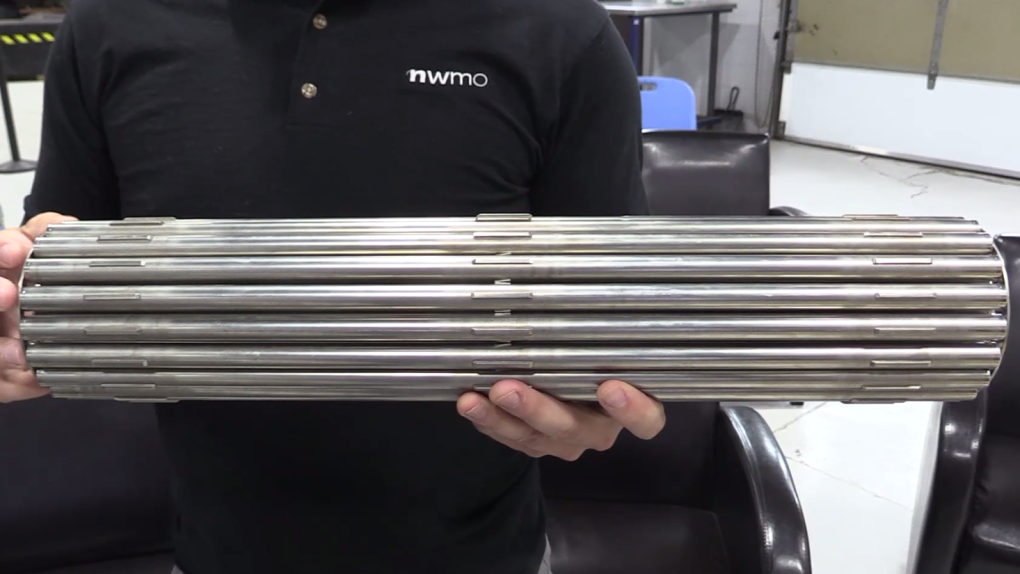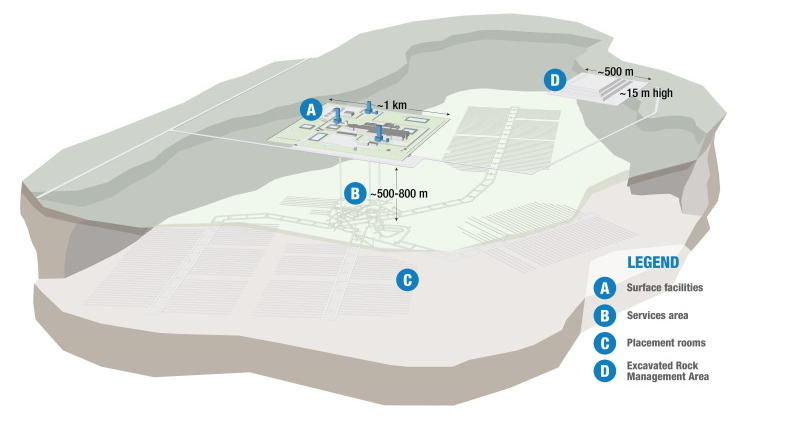'Shock, disappointment, and excitement': South Bruce not selected for nuclear waste project
Anja Vandervlies and Michelle Stein could hardly believe it when they heard South Bruce was not going to host Canada’s first permanent storage facility for nuclear waste.
“I don't think there are words to explain exactly how we're feeling right now, because we were not expecting this. It's amazing,” said Stein, who would have lived very close to the proposed project.
The pair of South Bruce farmers have been leading the charge against the project that would have seen 6.1 million used nuclear fuel bundles buried under 1,500 acres of farmers fields north of Teeswater.
South Bruce voters narrowly voted in favour of hosting the controversial project in a referendum last month.
“To be honest, after the referendum, I was feeling quite hopeless. I did not see any foreseeable future for our family here. We had to actually kind of take a step back. And we're like, God, we don't know what your plan is, but we're just going to trust in you. And then this morning's announcement came, and it was just amazing,” said Stein, who had seriously thought of moving her family farm elsewhere if the project ended up in South Bruce.
 Example of used nuclear fuel bundle that will end up Deep Geological Repository for nuclear waste, seen in June 2024. (Scott Miller/CTV News London)
Example of used nuclear fuel bundle that will end up Deep Geological Repository for nuclear waste, seen in June 2024. (Scott Miller/CTV News London)
In the end, the Nuclear Waste Management Organization (NWMO) said with similar geology and transportation safety cases, their desire to pick a preferred site by the end of this year is what made them choose a Northwestern Ontario location near Ignace, within the Wabigoon Lake Ojibway Nation, over South Bruce.
Both Ignace and Wabigoon had voted in favour of the project, while the Saugeen Ojibway Nation, whose territory South Bruce falls within, was not planning a willingness vote until at least early next year.
“I think they weren't ready, and there were many steps they needed to go through. So, we had decisions in the north, we had a good site that met all of our criteria, so it made sense for us to move forward. Frankly, the thing that pushed us to make the decision was really needing to move forward with this project in a timely way,” said Laurie Swami, president of NWMO.
The chiefs of the Saugeen Ojibway Nation called the NWMO’s decision making process “extremely disappointing.” Chiefs Greg Nadjiwon and Conrad Ritchie go on to say, “NWMO has made many commitments to work with us collaboratively to support our decision making process in a full and respectful way. But it is clear NWMO continues to act unilaterally, making decisions behind closed doors and without regard for our governance process or good faith partnership.”
 Example of layout for Deep Geological Repository to host Canada’s high level nuclear waste. (Source: Nuclear Waste Management Organization)
Example of layout for Deep Geological Repository to host Canada’s high level nuclear waste. (Source: Nuclear Waste Management Organization)
The decision leaves South Bruce supporters of the project disappointed in a missed opportunity that could have brought as many as 700 high-paying jobs to the community, and potentially doubled the municipality’s gross domestic product to nearly $700 million.
“Canada does not have a nuclear waste problem. We have a nuclear waste solution. Now that solution is going to be realized in the Township of Ignace. Would I rather that came here? Yes, it would be great for our economy. But like I said, we're host to the nuclear industry already. We're going to continue to participate in and benefit from the nuclear industry going forward,” said Tony Zettel, part of a group of South Bruce residents called ‘Willing to Listen,’ who were in favour of the project coming to the region.
Although he declined CTV’s request for an interview, South Bruce Mayor Mark Goetz had this to say about the NWMO’s decision not to pick his community, “Through its 12-year participation in the site selection process, the Municipality has positioned itself to pursue alternative economic development opportunities. South Bruce looks forward to exploring these opportunities to create success for future generations.”
Chief Clayton Wetelainen of the Wabigoon Lake Ojibway Nation had this to say about his community being selected to host Canada’s most radioactive nuclear waste, forever, “Wabigoon Lake Ojibway Nation views our role as the potential host for Canada’s used nuclear fuel as one of the most important responsibilities of our time. We can not ignore this challenge and allow it to become a burden for future generations. Our membership spoke with a clear voice in our willingness decision that we have the bravery and courage to continue to the next phase of this project.”
Although they miss out on $418 million over 138 years if they were selected to host the underground Deep Geological Repository (DGR) for nuclear waste, South Bruce doesn’t walk away empty handed. They received nearly $10 million for making it this far in the selection process. Tuesday’s decision was a relief for some in the community and disappointment for others.
“I'm disappointed that the project's not coming here, but the important thing for Canada is that we are going to have a DGR in our future,” said Zettel, from South Bruce Proud-Willing to Listen.
“It's just such a joyful feeling to know that our battle was successful,” said Vandervlies, from Protect our Waterways-No Nuclear Waste.
CTVNews.ca Top Stories

The world begins welcoming 2025 with light shows, embraces and ice plunges
From Sydney to Vladivostok to Mumbai, communities around the world have begun welcoming 2025 with spectacular light shows, embraces and ice plunges.
Poilievre's Conservatives end 2024 hitting long-term high in the polls amid Trudeau resignation calls: Nanos
Pierre Poilievre's Conservatives are closing out 2024 hitting a new long-term high in ballot support, with a 26 point advantage over the Liberals amid calls for Prime Minister Justin Trudeau to resign.
Female victim in Calgary double homicide identified as elementary school teacher
Rocky View School Division (RVSD) on Tuesday identified the woman who was murdered Sunday night in Calgary as Ania Kaminski, an elementary school teacher in Cochrane, west of the city.
Trump says he is planning to attend Jimmy Carter's funeral
U.S. president-elect Donald Trump said Tuesday that he's planning to attend the funeral of former president Jimmy Carter.
What Canadian game show did Alex Trebek host in the 60s? The answer continues to inspire students today
For nearly 60 years, the national Reach for the Top competition has been putting the wits of Canadian students to the test. In 2024, students from about 500 schools across the country participated in the competition.
Telegraph Cove, B.C., fire takes out beloved businesses, parts of boardwalk
The most iconic portion of a picturesque boardwalk in Telegraph Cove, B.C. was destroyed by fire on Tuesday morning.
One arrested following terrifying road rage incident on Hwy. 11 in northern Ont.
Ontario Provincial Police are asking for the public's help in investigating a road rage incident Monday on Highway 11 near Temiskaming Shores.
Nearly all of Puerto Rico is without power on New Year's Eve
A blackout hit nearly all of Puerto Rico early Tuesday as the U.S. territory prepared to celebrate New Year's Eve.
Woman burned to death inside New York City subway is identified
The woman who died after being set on fire in a New York subway train earlier this month was a 57-year-old from New Jersey, New York City police announced Tuesday.


































